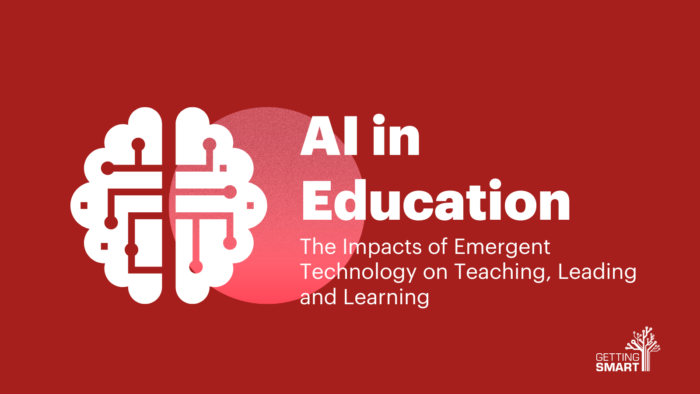Support and Guidance Technology
The tech industry has developed an array of solutions aimed at personalizing recommendations and wayfinding.


Advisory systems were once an old-school function focused solely on enabling students to persist toward graduation and (for some) filling out college applications. Increasingly, they are being designed to invite learners into decision-making on personalized pathways with exposure to a wider range of valuable postsecondary and career-related experiences.
As discussed earlier, these systems now incorporate broader goals including success skills and well-being, and are leveraging technologies developed both in-house and by third parties in the process. The means for scaling them is now ever more accessible via mobile and browser-based applications.
Advisors at the K-12 level face multiple challenges. At more than 4,000 degree-granting institutions, America’s postsecondary environment is vast and becoming increasingly fractured, with nontraditional credentials rising in popularity. The high cost of college has brought it center stage in conversations about students’ futures, as the relevance of a four-year degree has more recently come into question. Meanwhile, keeping up with industry trends and job possibilities as new developments arise requires ongoing staff attention at an impossible scale.
The tech industry has responded by developing an array of solutions aimed at supporting guidance counselors, educators, academic advisors and other key roles involved in students’ educational journeys.
Career Readiness Resources
- Careervillage: a learner community where students can unlock career advice from working professionals.
- Headed2: owned by Powerschool, helps students, educators, jobseekers, and others access up-to-date information on wages, job openings, and other information.
- Into Careers: from the University of Oregon, helps students build career plans and portfolios that they continue to use after graduation.
- Focus2Career: assessments and decision-making models that helps students choose a college, select a major, and explore occupations.
- World of Work: a K-12 career exploration curriculum including 78 immersive experiences including projects and meeting professionals.
- YouScience: aptitude assessments and career discovery that help manage work-based learning experiences.
- EvolveMe and Futurescape: American Student Assistance (ASA)-developed applications that connect students to career possibilities. EvolveMe is a free platform where students earn points and get prizes by developing career navigation skills; Futurescape enables students to explore future careers based on their personal interests.
- Analytikus: higher education career planning and path coach.
- Anthology: higher education guide from classroom to career.
Comprehensive College and Career Platforms
These platforms include supports for career exploration, aptitude assessments, college selection and application.
- Naviance: a K-12 college and career readiness solution from Powerschool that analyzes skills and talents via career and personality assessments and develops personalized plans to stay on track and reach academic goals.
- Kuder: Pk–20 career guidance platforms, assessments, and resources with grade-specific content.
- MaiaLearning: career readiness, college application and social-emotional skill building platform.
- MajorClarity: a career and college readiness platform owned by Paper that enables middle through high school students to test drive possible careers and build a career-aligned course of study.
- Overgrad: college and career readiness application designed for guidance counselors and customized for schools.
- Pathful: a connections platform that provides live, industry-based experiences across the full career readiness journey (Planning, Exploration, Preparation, Experience, Placement).
- SchooLinks: a college and career tool for counselors and career directors to prepare students for life after graduation, ensuring compliance with state policies and reporting requirements.
- Trovit: an all-in-one platform to create portfolios, student resumes, progress-folios, a learning network and a place to securely keep information and learning artifacts organized.
- Xello: a platform that engages students in building the skills, knowledge, and plans for future success
College Essay Writing
- ES.AI: a tool that assists with college essay writing and applications.
- Revision Learning: supports storytelling and college essay and application development alongside the Story2 app.
Skill Building and Mentorship
- XSEL Labs: supports teacher success and students’ social-emotional development.
- UStrive: enables teens to sign up, find, and meet with a mentor from top companies.
- Talk Hiring: helps students learn to interview with confidence by doing automated mock interviews with instant feedback.
- Skillsline: a platform that teaches durable skills.
- LinkedIn Learning: a widely used workforce skill-building platform with some higher education adoption.
Data Platforms
- Authentica Solutions: education data solutions including support services for school districts and colleges.
- BrightBytes: a data analytics solution using machine learning to populate custom dashboards for monitoring and informing decisions (owned by Google).
- Brighthive: data platform used by colleges and education support organizations for decision support and program evaluation.
- Economic Mobility Systems: nonprofit that helps school districts build strong real-time case management solutions to dramatically improve equitable college and career outcomes.
- Nuventive: higher education intelligence and improvement platform.
Work-based Learning Resources
- Pathway OS: manages internships and service learning experiences.
- Imblaze: an internship management system from Big Picture Learning.
- Riipen: manages higher education experiential learning including client projects.
- ProjectSet: an online platform for virtual work-based learning opportunities that help high school and college students to develop workplace skills and become career ready.
- Project Leo is a generative AI application that builds community-connected projects linked to the four Ikigai quadrants: what you love, what the world needs, what you’re good at, and what you can get paid for.
Transcripts and Learner Record Resources
- Mastery Transcript Consortium: empowers students to showcase competencies and share evidence of their learning with flexible and scalable learning records.
- The International Big Picture Learning Credential: a personalized transcript that reflects the richness of students’ real-world experiences, personal qualities and academic results.
- Cirkled In: a platform that empowers K-16 students to showcase their holistic achievements, strengths, and talents, connecting them to their best-fit educational and employment opportunities.
- Greenlight Credentials: a blockchain learner record piloted in north Texas high schools and enabling learners to share records to employers, scholarship providers and postsecondary institutions.
- Territorium: a learner record with 12 million users including many students in Latin American higher education.
- Parchment: a transcript management service.
Artificial Intelligence
The rise of artificial intelligence (AI) is enabling educator teams to use smart tools to do what would have been computationally impossible in years past. Machine learning is quickly being incorporated into advisory systems that support learners and has the potential to extend access to personalized learning experiences, localized guidance and efficient supports.
Because AI introduces new assessment capabilities that can track students’ learning as they work and do so without a formal, separate test, students receive feedback earlier. This is even more valuable for keeping special education students progressing in their learning. Early intervention from attentive machines is also becoming a trend in systems offering “early warning system” functions for students at risk of falling behind.
Concerns remain surrounding how the use of AI in guidance/advising may unfairly track students based on demographic characteristics. To mitigate these, policies that inform students and parents appropriately must be defined and expanded, in compliance with district, state and federal regulations. It is critical to achieve a trustworthy profile for at-risk students, with data then tracked to determine what best serves each student’s needs.

AI in Education
Artificial Intelligence is here to stay in education and is continuing to gain usability. Check out our recent publication on AI in Education to learn more about what’s happening now and what’s to come.
In short order, we will see generative AI-powered personalized ‘pathbots’ that support students on their journey through prompts and interoperable technology systems that link to their personalized tutors and other pieces of the tech stack. These tools will help students in making the best choice both in and out of school, along with cataloging and considering numerous career exploration avenues and aptitudes.
Some of this is already beginning. At Southern New Hampshire University, Penny, a chat bot, has “helped boost persistence rates—and retention for first-time students, in particular, by some 4.6 percentage points,” according to Inside Higher Ed. While not full replacements, these tools are able to support human advisers and can surprisingly “increase student-adviser engagements by proactively reaching out to students to help identify persistence barriers.”

